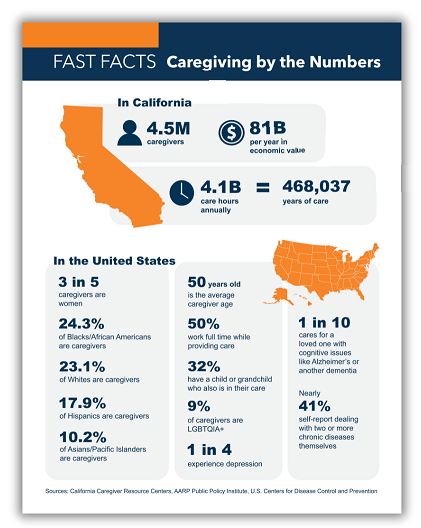An estimated 4.5 million Californians care for a family member (Source: AARP)
Three in five caregivers are women. (Source: CDC)
50% of caregivers work full-time while providing care. (Source: CDC)
1 in 4 caregivers experiences depression (Source: CDC)
1,373,000 caregivers care for someone with Alzheimer's or dementia. (Source: 2024 CA Alzheimer’s Statistics)
Click to view Caregiving Fast Facts
